About Horizon Wellness Center
Horizon Wellness Center in Rustburg, Virginia, is a center where you can find support for mental health and substance use disorder services through outpatient programs that help you in your journey toward recovery. They offer a range of options that can work with your schedule, including intensive outpatient programs when you need something a little more structured. Their substance use disorder services are an essential part of what they do, offering different levels of support to match what you’re working through.
They accept Medicaid, Medicare, private insurance, military insurance, self-payment and state-funded plans. You can also talk to them about their sliding fee scale if you’re paying out of pocket. This can make getting support a little easier.
At this location, you can find outpatient services that help you move forward while staying in your community. You’ll have access to mental health services and substance use disorder treatment that can support you through different stages of recovery. Their outpatient services can give you ways to work on things while still being able to take care of your daily life.
Intensive Outpatient Care in Central Virginia
If you need something with more structure, the intensive outpatient program (IOP) might be right for you. This option gives you more time in treatment without stepping away from work, family or other responsibilities. We like that the IOP here is available locally, giving you the chance to stay connected while getting stronger support.
Aftercare Support Near Rustburg
You can keep getting support after completing your main treatment through their aftercare options. These include continued outpatient sessions and support groups that can help you stay on track over time. What strikes us most about them is how they’ve made sure you have paths to stay connected even after the main programs are done.
Rehab Score
Gallery
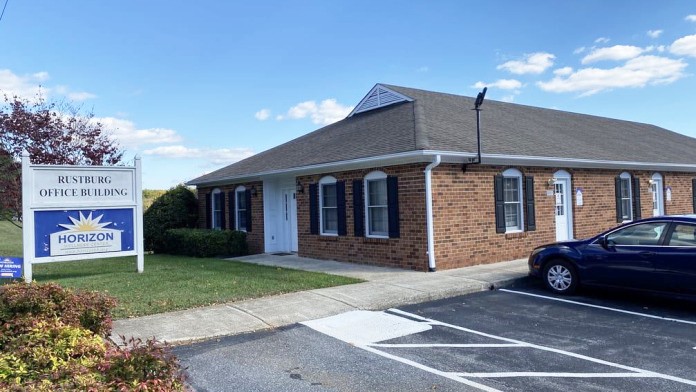
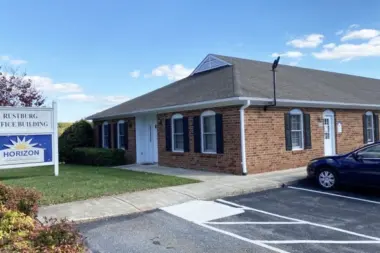
Accepted Insurance
Other Forms of Payment
Medicaid is a state based program that helps lower-income individuals and families pay for healthcare. Medicaid covers addiction treatment so those enrolled can use their coverage to pay for rehab. When a program accepts Medicaid the client often pays very little or nothing out of their own pocket.
Private insurance refers to any kind of healthcare coverage that isn't from the state or federal government. This includes individual and family plans offered by an employer or purchased from the Insurance Marketplace. Every plan will have different requirements and out of pocket costs so be sure to get the full details before you start treatment.
Self-pay involves paying for treatment out of your own pocket. You can use savings or credit, get a personal loan, or receive help from family and friends to fund your treatment. If you don't have insurance or your insurance plan doesn't cover a specific program, self-pay can help ensure you still get the care you need.
Financial aid can take many forms. Centers may have grants or scholarships available to clients who meet eligibility requirements. Programs that receive SAMHSA grants may have financial aid available for those who need treatment as well. Grants and scholarships can help you pai for treatment without having to repay.
Sliding scale payments are based on a client's income and family size. The goal is to make treatment affordable to everyone. By taking these factors into account, addiction recovery care providers help ensure that your treatment does not become a financial burden to you or your family, eliminating one barrier to care.
Medicare is a federal program that provides health insurance for those 65 and older. It also serves people under 65 with chronic and disabling health challenges. To use Medicare for addiction treatment you need to find a program that accepts Medicare and is in network with your plan. Out of pocket costs and preauthorization requirements vary, so always check with your provider.
Military members, veterans, and eligible dependents have access to specific insurance programs that help them get the care they need. TRICARE and VA insurance can help you access low cost or no cost addiction and mental health treatment. Programs that accept military insurance often have targeted treatment focused on the unique challenges military members, veterans, and their families face.
Addiction Treatments
Levels of Care
Improving your quality of life is the ultimate goal. In many cases they can help you do that through their outpatient services. Outpatient therapy is provided to address a wide array of behavioral and emotional concerns that individuals experience. They offer a broad range of programming, and specialized clinical staff to meet the needs of their clients.
Traditional outpatient therapy isn’t enough for some clients. Severe emotional, mental health or behavioral issues can call for a more rigorous course of action. Services provided in the home and community can have a profoundly positive impact on clients. The ultimate goal is to stabilize a person’s mental health while maintaining a productive and positive life in the community.
Completing a drug or alcohol rehab program shouldn't spell the end of substance abuse treatment. Aftercare involves making a sustainable plan for recovery, including ongoing support. This can include sober living arrangements like halfway houses, career counseling, and setting a patient up with community programs like Alcoholics Anonymous (AA) or Narcotics Anonymous (NA).
Treatments
The goal of treatment for alcoholism is abstinence. Those with poor social support, poor motivation, or psychiatric disorders tend to relapse within a few years of treatment. For these people, success is measured by longer periods of abstinence, reduced use of alcohol, better health, and improved social functioning. Recovery and Maintenance are usually based on 12 step programs and AA meetings.
When you enroll in drug rehab in Virginia, a treatment plan is designed by professional staff in order to help you overcome drug addiction and modify addictive behaviors. This may include evidence-based treatments, group and individual therapy, and relapse prevention.
Many of those suffering from addiction also suffer from mental or emotional illnesses like schizophrenia, bipolar disorder, depression, or anxiety disorders. Rehab and other substance abuse facilities treating those with a dual diagnosis or co-occurring disorder administer psychiatric treatment to address the person's mental health issue in addition to drug and alcohol rehabilitation.
A combined mental health and substance abuse rehab has the staff and resources available to handle individuals with both mental health and substance abuse issues. It can be challenging to determine where a specific symptom stems from (a mental health issue or an issue related to substance abuse), so mental health and substance abuse professionals are helpful in detangling symptoms and keeping treatment on track.
Opioid rehabs specialize in supporting those recovering from opioid addiction. They treat those suffering from addiction to illegal opioids like heroin, as well as prescription drugs like oxycodone. These centers typically combine both physical as well as mental and emotional support to help stop addiction. Physical support often includes medical detox and subsequent medical support (including medication), and mental support includes in-depth therapy to address the underlying causes of addiction.
Programs
Adult rehab programs include therapies tailored to each client's specific needs, goals, and recovery progress. They are tailored to the specific challenges adult clients may face, including family and work pressures and commitments. From inpatient and residential treatment to various levels of outpatient services, there are many options available. Some facilities also help adults work through co-occurring conditions, like anxiety, that can accompany addiction.
Young adulthood can be an exciting, yet difficult, time of transition. Individuals in their late teens to mid-20s face unique stressors related to school, jobs, families, and social circles, which can lead to a rise in substance use. Rehab centers with dedicated young adult programs will include activities and amenities that cater to this age group, with an emphasis on specialized counseling, peer socialization, and ongoing aftercare.
Clinical Services
Cognitive Behavioral Therapy (CBT) is a therapy modality that focuses on the relationship between one's thoughts, feelings, and behaviors. It is used to establish and allow for healthy responses to thoughts and feelings (instead of unhealthy responses, like using drugs or alcohol). CBT has been proven effective for recovering addicts of all kinds, and is used to strengthen a patient's own self-awareness and ability to self-regulate. CBT allows individuals to monitor their own emotional state, become more adept at communicating with others, and manage stress without needing to engage in substance abuse.
Experiential therapy is a form of therapy in which clients are encouraged to surface and work through subconscious issues by engaging in real-time experiences. Experiential therapy departs from traditional talk therapy by involving the body, and having clients engage in activities, movements, and physical and emotional expression. This can involve role-play or using props (which can include other people). Experiential therapy can help people process trauma, memories, and emotion quickly, deeply, and in a lasting fashion, leading to substantial and impactful healing.
Research clearly demonstrates that recovery is far more successful and sustainable when loved ones like family members participate in rehab and substance abuse treatment. Genetic factors may be at play when it comes to drug and alcohol addiction, as well as mental health issues. Family dynamics often play a critical role in addiction triggers, and if properly educated, family members can be a strong source of support when it comes to rehabilitation.
Mental Health Groups are offered based on consumer needs. Some of the groups include anger management, domestic violence or abuse, and depression. Chemical dependency/use groups are provided to individuals who can benefit from working through their recovery in a group setting. They have Certified Substance Abuse Counselors and Licensed Counselors who help create a treatment plan.
In individual therapy, a patient meets one-on-one with a trained psychologist or counselor. Therapy is a pivotal part of effective substance abuse treatment, as it often covers root causes of addiction, including challenges faced by the patient in their social, family, and work/school life.
Psychosocial rehabilitation gives Horizon clients with severe mental illness a chance to learn and retain living and social skills, making it easier for them to live in the community. By developing healthy relationships and a peer support system, their clients are given the confidence they need for mental health recovery and to tackle life.
Trauma therapy addresses traumatic incidents from a client's past that are likely affecting their present-day experience. Trauma is often one of the primary triggers and potential causes of addiction, and can stem from child sexual abuse, domestic violence, having a parent with a mental illness, losing one or both parents at a young age, teenage or adult sexual assault, or any number of other factors. The purpose of trauma therapy is to allow a patient to process trauma and move through and past it, with the help of trained and compassionate mental health professionals.
Amenities
-
Private Setting
-
Yoga Studio
Staff & Accreditations
Staff
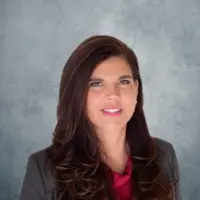
Melissa Lucy, LPC, QMHP
CEO
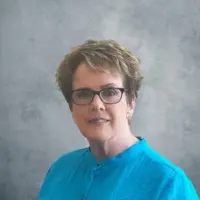
Sandy Farmer
Executive Assistant to the CEO
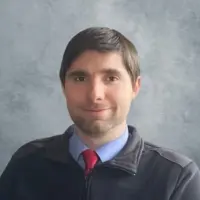
Alva Harold
Senior Clinical Director
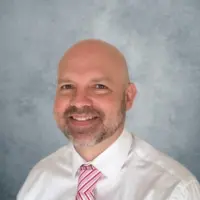
Matthew Hartsook
CFO
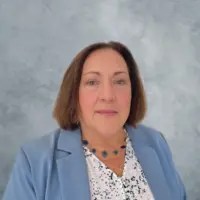
Theresa McCaskill
Director of Talent Management
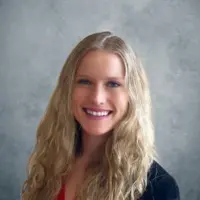
Gabriella Smith
Public Relations Officer
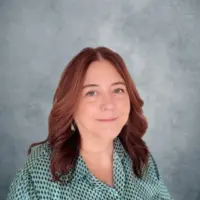
Sherri Walker Thacker
Senior Clinical Director of Outpatient, Case Management & Housing
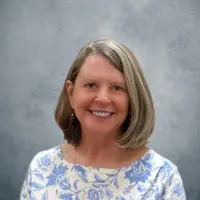
Betty Brickhouse
Chairwoman
Accreditations

The Commission on Accreditation of Rehabilitation Facilities (CARF) is a non-profit organization that specifically accredits rehab organizations. Founded in 1966, CARF's, mission is to help service providers like rehab facilities maintain high standards of care.
CARF Accreditation: Yes
Contact Information
37 Village Highway
Rustburg, VA 24588




